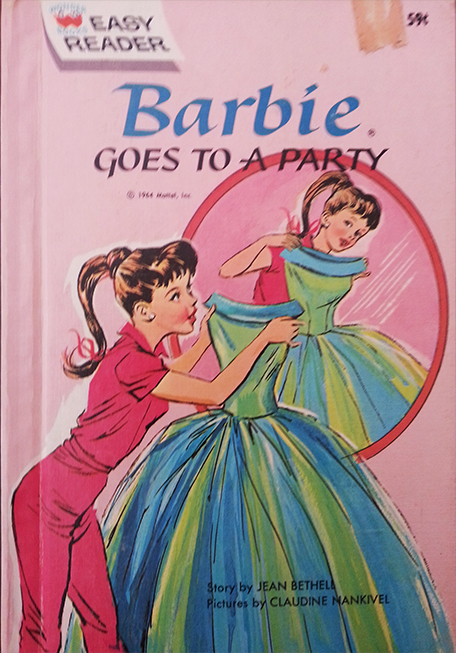Awhile ago, I was reviewing a proverbial stack of nonfiction and fiction proposals. As I read them, I noticed something. And I saw that something again just recently as I read over proposals during a series of 15-minute meetings with conferees at a writers’ conference. What was that something? In their proposals, more and more writers are comparing their work to icons in publishing. As in:
“My work contains overtones of Ernest Hemingway.”
“This book marries the power of To Kill a Mockingbird with the truth of Corrie Ten Boom.”
“My books are just like Ted Dekker’s, so my audience is the same as his.”
Now, all of that is well and good if, indeed, those assertions are true. But I’m sorry to say, it usually isn’t. It’s not that the proposals were terrible. Some were pretty good. But there really weren’t overtones of EH, nor was there a marriage, nor was the story contained in the sample chapters “just like” a Ted Dekker book.
I get it. Writers want to position their writing, genre, style in the agents’ or editors’ minds. That’s a good thing. But if you want to compare your work to someone else’s, don’t make that comparison yourself. Instead, utilize the gift of readers. Here are some simple steps to do that:
- Put together a group of advance readers who agree to read your manuscript and answer a few questions. Don’t use friends and family. Instead, find readers through your social media, the local library or schools/universities, writers’ groups. Folks who don’t know you personally but who love to read.
- When you send the manuscript to these folks, ask them to comment on whatever will help you best, be it pacing, character development, plot, word choice, dialogue…whatever. But include this as one of your questions:
Did the writing, the story, or the tone remind you of any of your favorite writers?
Or have them fill in the blanks, such as:
If you enjoy ___________’s books, you’ll like this book. (But do not give them any possible names of writers. This has to come from the readers, not from you.)
- If there seems to be a consensus among the readers, meaning several compare you to the same writer, then you can say in your proposal: “Advance readers have said my writing/story/tone/voice (whatever) reminds them of ___________.”
What do you do if no one makes a comparison? Then talk about why you wrote the book. Something like, “I wrote this book because I enjoy Ted Dekker’s novels and wanted to craft a story that would resonate with readers of the genre.”
Peace, friends.



 Duh Blog
Duh Blog

Very nice essay on how writers can shoot themselves in the foot.
Comparisons can be pretty hard to make, though, unless one’s aiming at a very specific target audience.
I’ll use myself as an example (and perhaps consign myself to oblivion, but what the hey). Andrew Greeley appealed to middle-and upper class Catholic women 35-65; it was an audience that was largely neglected until then (and it’s being neglected again now).
I don’t write like Greeley; I can’t. But I’ve read everything he’s written, several times (including non-fiction and academic work), to gain a feel for the cultural paradigms he addresses. And yes, in preparing proposals, I have used the approach you suggested – readers of Greeley might like my work.
I love these suggestions, Karen. As I begin to think about my proposal, I like your way of showing who my writing might compare to in the market. Very helpful!
I love the idea of asking advance readers these questions. My questions are:
1. As an agent, does it matter? I never thought to compare my writing or style to anyone else.
2. What is the value in doing so?
3. Would you make the same suggestion for a Christian living or non-fiction book?
Excellent points I *wish* I had known before my first submissions. As Jeanne stated, it’s a great way to show comparison without sounding presumptuous. Thank you!
What about the proposal section asking for specific market comparisons on how different from contemporary (last 3 years)?
Pls pardon style- in narrow window of cell service in SE NM desert.
SW not SE. Rough road, too.
Karen,
I asked a retired senior editor of a major publisher for which we both worked in the past to critique my latest book, chapter by chapter, with whatever degree of brutal honesty was necessary. We both fully understood that finding faults to correct would be much more beneficial to me than bestowing undeserved compliments. Her suggestions were Aha! moments to me, and when I was done with the rewrites, she pronounced the book “wonderful”–high praise from someone so reticent to compliment as she is! Now I echo Carol’s question about proposal rubrics that require comparisons. In a proposal for that book I said people who enjoy the Thoenes’ series (most recent book 2013) and Gilbert Morris’s books (most recent 2014) might enjoy mine, too, because those authors are noted for interesting plots and characters set in authentic and highly accurate historical and geographic settings. I didn’t say I wrote as well as they did; but have those authors been writing too long to be considered contemporary enough to use in a book proposal, even though they’re still publishing? In subsequent proposals, should I specifically compare plot elements or characters, rather than settings? Thanks!